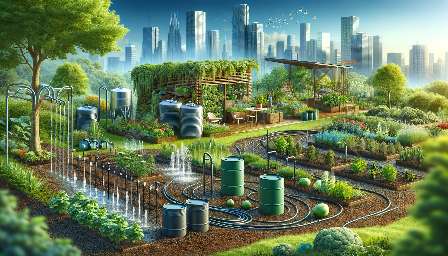Soil health is essential for the success of any garden, and one effective practice that can greatly improve soil health is the use of cover crops. Cover crops are plant species that are planted primarily to manage soil erosion, fertility, quality, water, weeds, pests, disease, biodiversity and wildlife in an agroecosystem. The use of cover crops offers numerous benefits to soil health and can be integrated seamlessly into composting and organic gardening practices.
The Benefits of Cover Crops for Soil Health
Cover crops play a vital role in enhancing soil health by providing a range of benefits:
- Soil Erosion Prevention: Cover crops form a protective layer over the soil, reducing erosion caused by wind and water.
- Increased Soil Fertility: Certain cover crops, such as legumes, fix nitrogen from the atmosphere and make it available to other plants, improving soil fertility.
- Enhanced Soil Structure: The root systems of cover crops help to break up compacted soil and improve water infiltration and retention.
- Weed Suppression: Cover crops can outcompete weeds for water, light, and nutrients, reducing weed pressure in the garden.
- Pest and Disease Control: Some cover crops can act as natural pest repellents and disrupt pest life cycles, helping to manage garden pests and diseases.
- Biodiversity and Wildlife Support: Certain cover crops attract beneficial insects and support a diverse ecosystem in the garden, promoting ecological balance.
These benefits make cover crops a valuable tool for maintaining healthy and productive soils in gardens and agricultural settings.
Integrating Cover Crops into Composting and Organic Gardening
Integrating cover crops into composting and organic gardening practices can further enhance the benefits to soil health and overall garden productivity. Here are some ways to seamlessly incorporate cover crops into composting and organic gardening:
- Green Manure: Cover crops can be grown specifically to be used as green manure, providing a nutrient-rich organic matter that can be incorporated into compost to improve its quality.
- Companion Planting: Some cover crops can be used as companion plants to other vegetables, providing a living mulch that suppresses weeds and conserves soil moisture.
- Rotational Planting: Incorporate cover crops into crop rotation plans to improve soil structure, fertility, and pest management in different garden beds over time.
- Seed Starting and Transplanting: Use cover crops to prepare beds for direct seed planting or as a cover for newly transplanted seedlings to protect them and improve soil conditions.
- Composting Cover Crop Residues: After cover crops have served their purpose, they can be incorporated into compost piles to contribute to the organic matter content and nutrient availability in the compost.
By integrating cover crops into composting and organic gardening, gardeners can take advantage of their soil-building properties and contribute to the long-term health and sustainability of their garden ecosystems.
Successful Cover Crops for Organic Gardening
When selecting cover crops for use in organic gardening, consider the specific needs of your garden and the current state of your soil. Some popular cover crops for organic gardening include:
- Crimson Clover: Fixes nitrogen, suppresses weeds, and attracts pollinators.
- Buckwheat: Improves soil structure, suppresses weeds, and attracts beneficial insects.
- Winter Rye: Helps to prevent erosion, adds organic matter to the soil, and suppresses weeds.
- Field Peas: Nitrogen-fixing, provides green manure, and suppresses weeds.
- Daikon Radish: Breaks up compacted soil, suppresses weeds, and improves water infiltration.
These cover crops can be tailored to meet the specific needs of your garden and are well-suited for organic gardening practices.
Conclusion
Using cover crops for soil health is an effective and sustainable approach to improving soil fertility and structure, managing pests and diseases, and promoting ecological balance in the garden. By integrating cover crops into composting and organic gardening practices, gardeners can harness their numerous benefits to cultivate healthy, productive, and resilient garden ecosystems.























